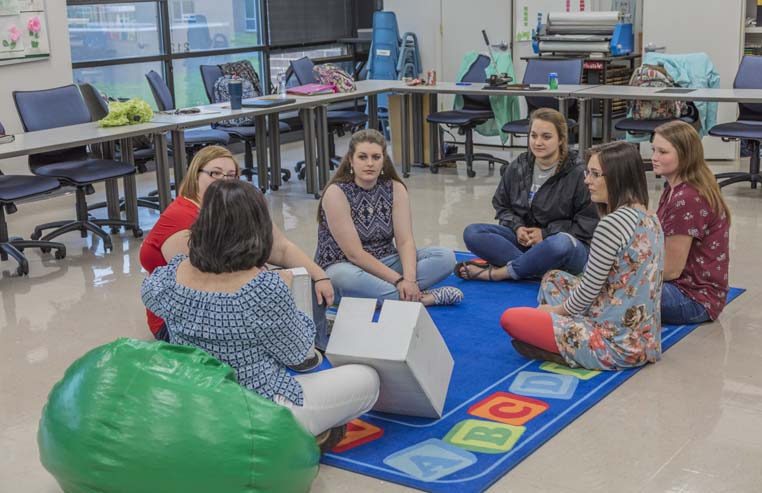You’ll learn about children's growth from birth through age five.
What Is Interdisciplinary Early Childhood Education?
If you love kids and want to make a difference in young lives, you might be a great preschool teacher. Research shows that providing high quality educational programs for our youngest children is an investment in the future. The Interdisciplinary Early Childhood Education program at MCTC can give you the tools to have a big impact on little ones. Our graduates gain an understanding of the cognitive, physical, social and emotional development for working with young children. Our students benefit from excellent classroom instruction and practical experiences that prepare them for this rewarding field.

Getting Started
What are my degree, diploma, and certificate options?
How Do I Pay For This?
Worry no more. With the lowest tuition in Kentucky, financial aid options, and a helping hand to guide you through the application process, MCTC has you covered. MCTC will help you reach your goals at a price that won't break the bank.
What Else Do I Need to Know?
Additional Information
Opportunities to apply this knowledge in practical experiences are incorporated in the curriculum. Curriculum topics include, but are not limited to developmental ages and stages, health and safety, curriculum planning, assessment and family involvement. Employment opportunities are available in public and private preschools, early care educational settings, early intervention programs, Head Start, hospitals, campus child development centers, rehabilitation clinics and recreation centers.
Progression in the Interdisciplinary Early Childhood Education program is contingent upon achievement of a grade of "C" or better in each IECE course and maintenance of a 2.0 cumulative grade point average or better (on a 4.0 scale).
- Design, implement and manage a developmentally appropriate program for young children.
- Interact effectively with young children in group settings.
- Exhibit an understanding of typical and atypical development and developmentally appropriate learning experiences.
- Exhibit knowledge of various learning theories and their applications.
- Demonstrate the ability to employ effective classroom management skills.
- Discuss and demonstrate the importance of empowering families and fostering community relationships.
- Observe, document, and assess progress to support young children, families, and programs.
- Display an understanding of the importance of social, economic, and physical forces in the world today.
- Describe ethical standards and professional guidelines, i.e., collaboration with colleagues, reflection, advocacy, and confidentiality.
Length of Program
You can earn an associate in applied science degree in two years if you maintain full-time status.
This information should not be considered a substitute for the KCTCS Catalog. You should always choose classes in cooperation with your faculty advisor to ensure that you meet all degree requirements.
